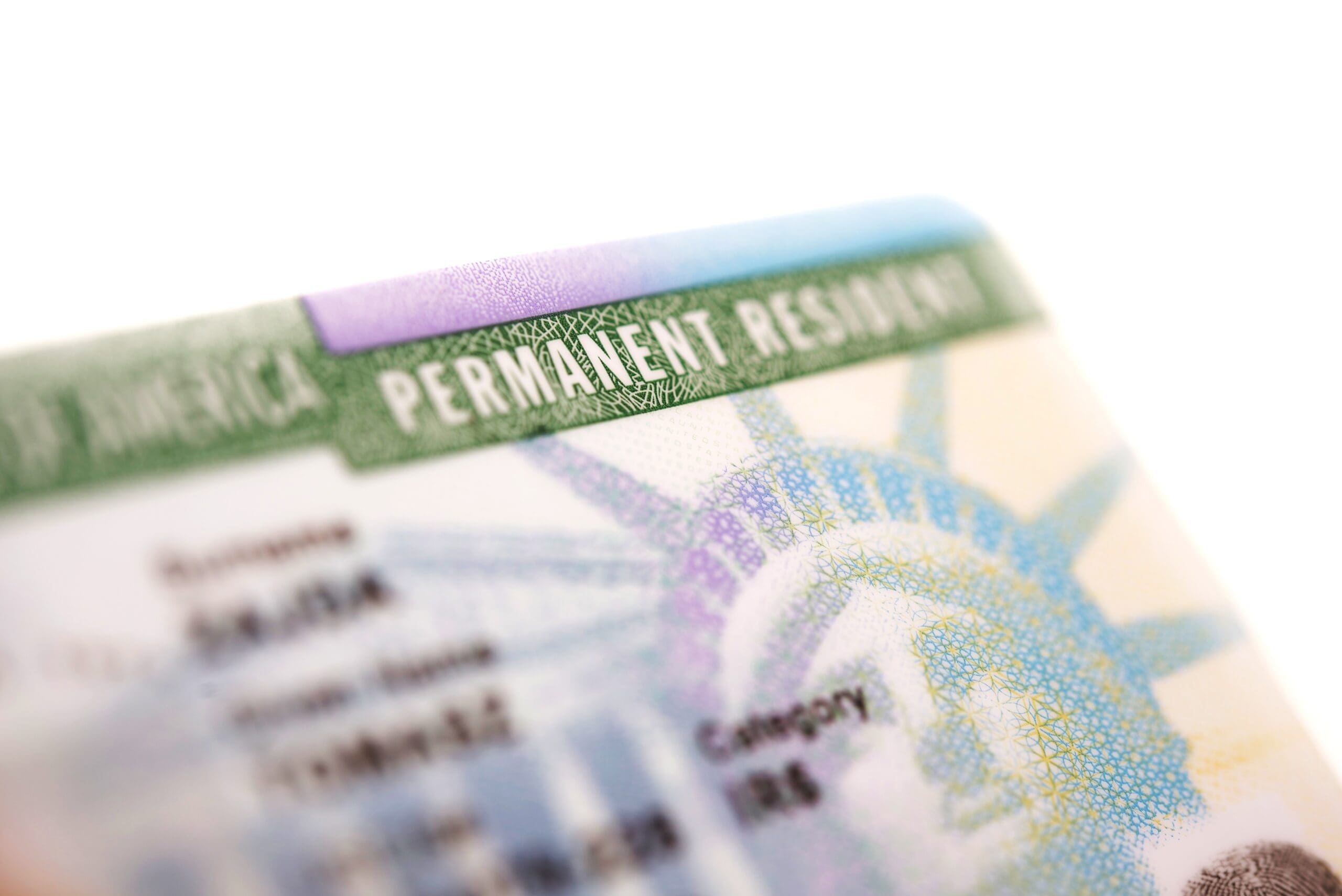
ICE agents remain a threat to immigrants even during Covid-19. In fact in some cases they remain more of a threat because the Covid-19 crisis has put many immigrants out of status.
Thus, it’s very important to know what you should and shouldn’t do when agents show up.
Know you do not have to open the door.
If the police don’t have a warrant you don’t even have to open the door. You can speak to them through the door to ask if they have one though, and you should.
You can also ask them if they have an interpreter, through the door, and it’s your right to have one.
Why not let them in, even if you “have nothing to hide?” Why not open the door and talk to them on the front porch?
Because they can say they “spotted something” that gave them probable cause to enter your home. Some unscrupulous ICE agents may even plant evidence and use that to take you into custody. Keep the door closed.
Say, “I do not consent to your entry and if you do not have a warrant I have nothing to say to you.”
Even as you’re saying it, it’s a good idea to dial up your immigration lawyer. If your lawyer knows ICE has arrived then they can start responding.
If they have a warrant it must be specific and signed by a judge.
It must say who or what they are looking for and where they will be looking.
There’s a chance cops will violate the warrant while they are on site but that is information you can pass on to your attorney, who can use it on your behalf later. It could make a difference in your case, so make sure you know what the warrant says.
Again, you do have a right to an interpreter.
Don’t lie or give false documents, but exercise your rights.
Lying or giving false documentation can get you into a lot of trouble and can result in criminal charges.
Instead, say, “I am exercising my right to remain silent and I’m exercising my right to an attorney.”
You do not have to wait for your arrest to exercise those rights, nor should you. If you do then cops can use your silence against you too. Once you assert your rights, they can’t do that.
Once you exercise your right, say nothing else. Voluntarily answering ICE’s questions can be construed as waiving your rights.
Having ICE at your door can be stressful, so keep your head and remember that even people who are out of status have rights in our country. Again, contact your lawyer as soon as you know there is a problem. It could mean the difference between ICE making an arrest and ICE leaving empty handed.
See also:
In The News: COVID-19 Continues to Impact Immigration
Federal Judge Blocks Trump Administration Rule Requiring Visa Applicants to Prove They Have Health Insurance
What Are the Grounds for Cancellation of Removal?

Covid-19 hasn’t done immigrants any favors. The most recent news brings a plethora of new hurdles and shifts in immigration policy.
The first is that a federal judge in Oregon has upheld Trump’s 60 day ban on green cards. The ban, first reported in the news as Trump’s “ban on immigration,” still allows visa processing for temporary farm workers and crop pickers, as well as EB-5 immigrant investor visas.
It’s a move that’s drawn a lot of criticism. The Atlantic blasted Trump for the move, saying, “The White House is closing pathways to citizenship while maintaining a flow of exploitable immigrant labor.”
They went on to say that the policy allowed Trump to bridge the two competing impulses from his supporters when it comes to immigration policy. “On one side, the economic demand for cheap labor; on the other, the desire to preserve white political hegemony…by preserving wealthy American’s access to exploitable labor while preventing the laborers themselves from earning the benefits and rights that come with American citizenship, the two visions can be reconciled. Donald Trump’s recent executive order on immigration is constructed to do precisely that.”
Meanwhile, being married to an immigrant has made it impossible for many Americans to get Covid-19 stimulus checks.
Across the nation struggling Americans are finding themselves struggling all the more because they married immigrants, many of whom were paying taxes with ITINs. There is little rationale for the denying of the checks to American citizens, regardless of who they are married to.
The Mexican-American Legal Defense and Educational Fund has sued the federal government to try to reverse the policy.
Lawmakers struggle over immigration’s response to Covid-19.
Representative Pramila Jayabil (D-Washington) and Senator Cory Booker (D-NJ) sponsored a bill to release detainees and halt enforcement against individuals who don’t pose a significant safety threat to the United States of America.
Meanwhile, Representative Matt Gaetz (R-FL) offered a retort: the PANDEMIC Act, which would “force the government to deport all illegal immigrants held in the US when a national emergency is declared because of a communicable disease.”
The PANDEMIC Act is unlikely to pass the House, currently controlled by Democrats, but continues to underline Republican hostility towards immigrants and immigration…unless, of course, it benefits wealthy business owners.
It’s an uncertain time.
Navigating immigration issues has gotten harder than ever, and we expect the climate will continue to be tumultuous. To make sure you have your best chance at resolving your immigration issues, call the Law Office of Kyce Siddiqi.
We’re still working during this pandemic, and we’re happy to set up a virtual consultation.
See also:
How Covid-19 is Impacting Immigration
In the News: New Denaturalization Task Force
Do Immigrants Have to Pay Taxes?

COVID-19 has had an impact on every aspect of our lives. It’s no surprise that immigration is having a similar impact.
Here are a few of the adjustments USCIS has had to make in response to the crisis.
ICE is avoiding healthcare facilities.
Right now the government would rather people seek care if they need it. ICE is actively encouraging the undocumented to go to the hospital if they need to. They have reserved the right to enforce near healthcare facilities in “extraordinary circumstances.”
Right now the bigger question is whether care will be available when you go.
As it happens, ICE has halted most enforcement measures. It’s focusing solely on “foreign nationals who pose public safety risks and those subject to mandatory detention because of criminal records.”
Of course, if you’re in their sights you can expect enforcement efforts to resume once the pandemic has ended.
Most Immigration Courts Are Closed
The pandemic is grinding most of the federal court system to a halt, and immigration court is no exception.
There is some widespread criticism and questioning as to why all the immigration courts haven’t closed, given the risks a crowded courthouse poses right now. Long Island uses the New York City court, so our immigration court is currently among the ones that are closed down.
USCIS In-Person Appointments Are Suspended
Interviews and naturalization ceremonies just aren’t happening. Expect to see these dates rescheduled. If social distancing lasts longer than a few months, you might in fact expect to see them rescheduled more than once.
They’re also rescheduling asylum interviews.
Just be patient and pay attention to the new dates.
USCIS Is Making Allowances for Special Circumstances
For example, F-1 students who lose their financial aid or on-campus employment because of COVID-19 may request authorization to work off-campus.
They are offering extensions or changes of status for immigrants who were prevented from returning home due to travel restrictions.
Applicants who had an extension of employment in progress will have their application processed using previously submitted biometrics. Thus your extension may well go through without you having to do anything further.
Routine visa services have halted.
This means your green card, visa, or change of status application is on hold, but if you’re stuck in the United States during this time you should not be penalized for this. Work closely with your immigration attorney to make sure that a COVID-caused overstay is properly documented, thus ensuring you won’t be penalized for circumstances beyond your control.
If you have specific questions about your immigration case, give this office a call. This is a trying time for everyone, especially for individuals who had a perilous situation to begin with.
See also:
Do Immigrants Have to Pay Taxes?
Federal Judge Blocks Trump Administration Rule Requiring Visa Applicants to Prove They Have Health Insurance
What Are the Grounds for Cancellation of Removal?

This week the DoJ created the Denaturalization Section. Its stated aim is “to pursue those who unlawfully obtained citizenship status and ensure they are held accountable for their fraudulent conduct.”
It’s a move that has a lot of naturalized American citizens quite worried.
Denaturalization has been a legal remedy open to the DoJ for many years, but it wasn’t used very often. Few cases were filed and even fewer led to the actual denaturalization of American citizens.
Who can be denaturalized?
You can be denaturalized if you lied on your naturalization application, especially about criminal acts or acts of terrorism which would have disqualified you on the grounds that you lacked good moral character.
Here’s an example:
“In February 2015, the U.S. District Court for the Northern District of Texas revoked the naturalization of Sammy Chang, a naturalized U.S. citizen from South Korea, after Chang admitted to smuggling women from South Korea and forcing them to work for him prior to his naturalization, an act that adversely reflected on his good moral character. The court denaturalized Chang through civil denaturalization proceedings because his conduct of obtaining forced labor should have barred him from obtaining citizenship.” –The National Immigration Forum
The lie must be for the purpose of concealing a “material fact” and must be a wilful misrepresentation of fact. The DoJ must be able to prove the representation would have had an impact on whether you were allowed to become a citizen.
Membership or affiliation with totalitarian parties like the Communist party or terrorist organizations can also put you at risk for denaturalization. This holds for membership that occurred 10 years prior to your naturalization or for 5 years after.
You can also be denaturalized if your spouse or parent is denaturalized, if you became a U.S. citizen through that spouse’s or parent’s denaturalization.
Currently the DoJ is investigating 700,000 naturalized citizens, representing a far greater number of cases than have ever been pursued.
Is a denaturalization case a civil case or a criminal case?
It can be either. When it’s a civil case it’s called a civil revocation of naturalization. The DoJ can also bring criminal fraud charges.
If the DoJ wins the case you are downgraded to a lawful permanent resident, or green card holder. You would then be in danger of deportation, especially if you committed a crime which would have led to a violation of status.
You also have the option of renouncing your citizenship voluntarily rather than fighting your case out in court, but this could also lead to deportation.
There’s reason to take heart, however. The DoJ must meet a high burden of proof in both cases. In the civil case the standard is that there must be “clear, convincing and unequivocal evidence which does not leave the issue in doubt.” The criminal case standard remains: “Proof beyond a reasonable doubt.”
There are multiple ways to defend the case, from proving the fact at issue wasn’t material to you becoming a citizen, to proving that the government’s own facts about your case are vastly mistaken.
To do so, you’ll need an experienced immigration attorney on your side. If you feel you’re at risk for being targeted under this new DoJ initiative, reach out to the Law Office of Kyce Siddiqi today.
See also:
What Are The Grounds for Cancellation of Removal?
4 Steps to a Smoother Immigration Process
Supreme Court Decision Makes Life Perilous for Immigrants With Criminal Records

If you earned money while living in the United States you’re required to pay taxes, even if you’re undocumented. In fact, every year undocumented immigrants pay $3.7 billion dollars of taxes.
How can you do it when you don’t have legal status? There are steps you can take.
#1) Get an ITIN.
The IRS will issue an Individual Taxpayer Identification Number to noncitizens who need to pay taxes in the United States.
To get one, you need to file IRS Form W-7.
You’ll have to submit documentation that you’re a foreign citizen or an alien when you file. You can either take it down to your nearest IRS office, mail the documentation to the address shown on the instructions (they will return your documents), or find an IRS-authorized Acceptance Agent to get the job done.
You can do this even if you’re being paid “cash under the table,” or if you obtained normal paid work without a social security number.
#2) File Taxes as Normal, But…
Be sure you claim your immigrant status on your return. If you’re a documented immigrant with a green card you can lose the card for failing to claim your immigrant status.
If you are having trouble filing, turn to a qualified tax professional. Tax law is exceptionally confusing, and you’re not alone if you’re having trouble with it. There are also a lot of resources available online, such as this Turbo Tax Guide for U.S. Immigrants.
Filing Taxes is Useful
If you want to become a permanent resident or a citizen your tax documentation can be extremely helpful.
They can:
Help you demonstrate good moral character.
Help you demonstrate continuous presence.
Failing to file can be grounds for deportation.
Tax laws currently restrict the IRS from sharing your information with USCIS or Homeland Security, which means you are unlikely to be vulnerable to deportation simply because you comply with tax law.
If you’re filing taxes for the first time you may need to save up to get them paid. Many immigrants are ineligible for tax breaks like the earned income credit, which could mean you owe a balance. Keep in mind it is possible to make payment arrangements with the IRS if you need to, but it’s better to increase your withholding or save up throughout the year.
See also:
Federal Judge Blocks Trump Administration Rule Requiring Visa Applicants to Prove They Have Health Insurance
What Are The Grounds for Cancellation of Removal?
4 Steps to a Smoother Immigration Process

















